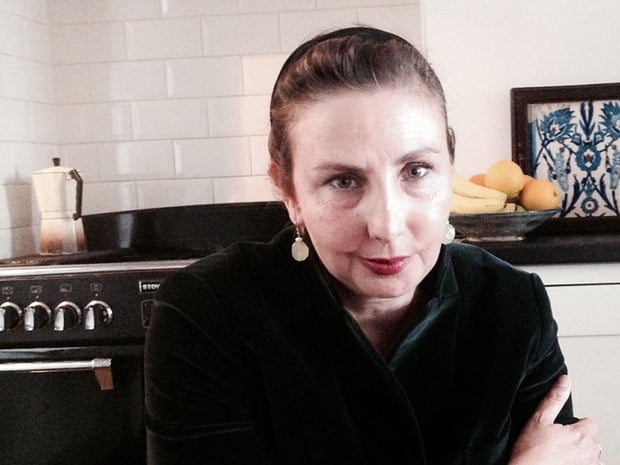
If the Oceans Were Ink is American writer Carla Power's story of how she and her longtime friend Sheikh Mohammad Akram Nadwi decided to tackle the "ugly stereotypes and persistent misperceptions" that were dividing their communities.
“People are going back to the basic texts, and they’re stripping away centuries of culture and tradition and looking for what they see at the heart of the religion,” she says.
Power provides readers with details of her year with sheikh Akram and how the Quran provided her with many moments of grace. “I found comfort in how small I felt reading the text, as when I considered the images of the ‘lord if the heavens and the earth and everything in between, and Lord of all points of the sunrise.’ Even as a nonbeliever, I still found myself taking refuge in the Quran classes as a clam inlet from daily life.”
Pervaiz Rashid stresses spreading Quranic teachings
Power notes the greatness of the Quran by highlighting the triviality of worldly matters like the “close on Wall Street, the exam score or dress size, even happiness itself” that seemed nothing next to the fact that from God we come and to God we return. She describes this as “constant reminders of one’s own puniness and powerlessness.”
She also shares a personal experience that made her realise the essence of the word InshAllah. “When my mother died, I remember thinking how sensible it was, the Muslim practice of saying InshAllah after every plan, every promise, no matter how minor, since only God can be sure whether next Wednesday’s lunch date will indeed be kept. It was a comfort, in a season of grief, to hang out with a community that honored this world’s certainties.”
On her understanding of namaz, she writes about it as a symbol of devotion to God. She mentions studies on the postures of Muslim prayers by scientists who have concluded that they encourage calm and flexibility. While standing straight strengthens the arrangement of muscles in the body, bowing helps stretch out the lower back and hamstrings, and sitting after prostration keeps joints mobile. In relation to this, Power notes how “Akram’s prayers have rendered him culturally supple, too, stretching his humanity in surprising ways. The act of return, to his prayer mat, to his Quran and his classical text--has often afforded an expansion of his worldview, not a restriction of it.”
She beautifully describes the sheikh offering his prayers and the meaning attached to his every move. She writes, “In standing, kneeling, bring his forehead to the earth, then standing again, his attention returns to his origins and destination, which are one and the same.” She also shares the words of the sheikh, who connects the experience to a “feeling of returning to the arms of your mother, when you are a child.”
The author explains the meaning of existence for the sheikh revolves around God, in the shape of a circle. The circle has God at its end, beginning, and every point in between. This sheds lights on his belief that “from Allah he has come, and to Allah he will return,” with everyday circling back to God.
On starting her Quran lessons, as she was able to understand its message, she realised that it is more than just a book. Instead, she reflects on its reach to Muslims around the world as a “metaphor of return. It is a place to which the faithful return, again and again.”
She explains, “I’d come a long way from earliest encounter with the Quran, but I still hadn’t understood that it was far more than a much-revered book. Over the course of the year, I began to see that the Quran was not merely a set of pages between two covers. Calling it a book, something one can read from beginning to end, embalms it in expectations. It was just another way of limiting it into something small: an amulet, a manifesto, an instruction guide, a political tool. In the life of a Muslim like Sheikh Akram, its meaning is much more diffuse.”
On questioning the sheikh about how to better understand the Quran, she shares his response, “Read. Keeping reading the Quran. Read it, and read it again. Return," echoing the command that Prophet Muhammad had heard upon revelation.
This article originally appeared on PBS.
COMMENTS (19)
Comments are moderated and generally will be posted if they are on-topic and not abusive.
For more information, please see our Comments FAQ
1725612926-0/Tribune-Pic-(8)1725612926-0-405x300.webp)







1732177276-0/Copy-of-Untitled-(62)1732177276-0-270x192.webp)
1732177123-0/BeFunk_§_]__-(21)1732177123-0.jpg)
1732179136-0/Copy-of-Untitled-(63)1732179136-0-270x192.webp)






And We have indeed made the Qur’an easy to understand and remember, then is there any that will remember (or receive admonition)? ( Chapter No 54, Verse No 22 – Holy Quran ) http://www.quraneasyguide.com/